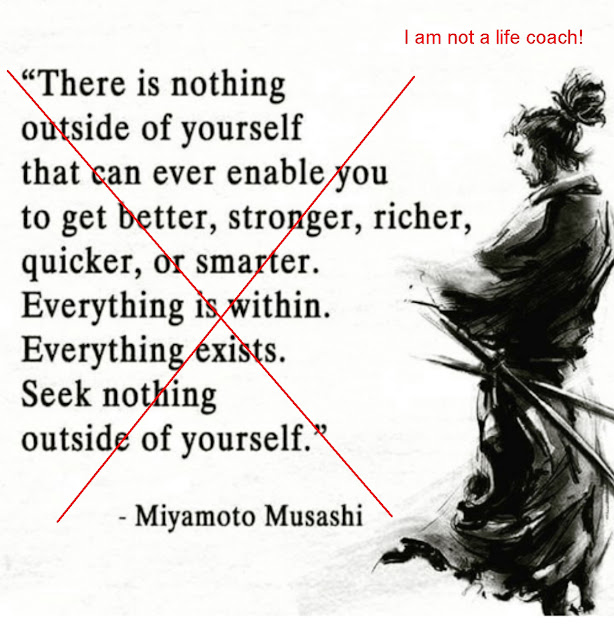Notes from the Robert Drysdale Interview
 |
| Robert Drysdale on Trapp BJJ Facebook Live Stream, 11 Apr 2020 |
Introduction
Earlier this week, Robert Drysdale, creator of the forthcoming movie Closed Guard, spoke to the Trapp BJJ community on Facebook. Around the 30 minute mark, Robert began discussing the movie and his research on the history of Brazilian jiu-jitsu (BJJ). Throughout this post I will use "BJJ" in order to differentiate from traditional or pre-Kano jujutsu, even though I usually just use "jiujitsu."Also, in a few places I've added links to articles that I referenced while writing this post. My goal here is not to confirm, disprove, agree with, or disagree with Robert's findings, as I only heard him on a video and did not see his sources. The links provide additional investigative leads for those interested.
Robert's Purpose for the Movie
Robert said the purpose of the movie is "to tell history as accurately as we could, given what we know." Robert said he was a history major, so I recognized the significance of what he said. Historians can only report and interpret what reliable available sources offer. Robert emphasized that he's not trying to be pro- or anti-Gracie or Fadda, referring to the two major "lineages" of BJJ.With respect to lineages, Robert noted that "lineage is a bush," not a line. In other words, few people have a straight linear relationship between themselves and others who have trained them. With that caveat, he made several key observations about instructors and students in BJJ.
Mitsuyo Maeda
First, there is no evidence that Kano trained Mitsuyo Maeda, also known as Conde Koma. By the time Koma was a student at the Kodokan learning judo, Kano was not directly teaching students.Second, Maeda taught five, possibly six, important figures in Brazil. The most important was Jacintho Ferro, who was Maeda's "right-hand guy." The sixth person was Donato Pires dos Reis, who became important to the Gracie story later.
Third, Maeda never said the words "Carlos Gracie" to anyone. There is no evidence of a relationship between Carlos Gracie and Mitsuyo Maeda. It's possible Carlos took a few classes with Maeda, but it's likely Carlos claimed Maeda as his teacher in order to better compete with all the Japanese who were teaching judo and jiujitsu in Brazil at the time.
The Gracie Academy
There were Japanese teaching in Brazil before Maeda arrived. In fact, when Robert interviewed Robson Gracie, brother to Carlos and Helio, Robson asked him "what would have been of Maeda, if not for Carlos?" In other words, "Maeda didn't make Carlos. Carlos made Maeda," (at least in Brazil -- my thought).Robert reported that there was no evidence of a Gracie Academy in 1925.
(Roberto didn't mention this in his interview, but if you read Roberto Pedreira's Choque volumes, you'll learn that Donato Pires dos Reis was important because he opened the first "Gracie Academy," in 1930, with Carlos and Helio Gracie as assistant instructors. Later Donato left, for whatever reason, and Carlos and Helio took over. An interesting story, about the non-existent "Oscar Gracie," reinforces this version of events.)
The Fadda Lineage and Others Forgotten
At this point hardcore Gracie fans are probably pretty upset with Robert, so to show he does not favor one side or another, he pointed out that "there is no evidence that Luiz Franca trained with Maeda." In fact, the [Oswaldo] Fadda lineage tracks back to the Gracies.Robert mentioned that no one remembers George Gracie, arguably the father of modern MMA, because he was normal and likeable. He was the first person to admit to the press that most of his fights were fake, as were Maeda's, because they were simply trying to put on a good show and make money to survive. George demonstrated great integrity, though, when he said that his brother Helio never took a fake fight, even though at the time he and Helio were not getting along well.
Robert explained how he wanted to include George Mehdi, a judo pioneer in Brazil, in his documentary, but he refused, noting "I don't have anything to say."
The Gracie Legacy
The real Gracie legacy doesn't need fake history, because, as Robert said in the interview, if not for the Gracies, "we would be doing judo." Judo inventor Professor Jigoro Kano thought "fighting on the ground was for animals" and was un-gentleman-like, so it created a niche for BJJ that the Gracies filled.Robert doesn't need the Gracies to be superheroes in order to respect them. They were humans, like all of us.
The Movie!
Beyond discussing other aspects of BJJ, the most interesting part of the interview was the question of when the Closed Guard movie would be released. Robert said that he hopes to release it before the COVID19 lockdown ends, and we return to our normal lives. I hope this is true and look forward to seeing it!
When writing this post I encountered several investigative leads that I intend to follow, so I'll have at least one more story inspired by this interview. Thank you to Trapp BJJ for making this available to your audience and to Robert Drysdale for sharing your expertise.



Comments
Post a Comment